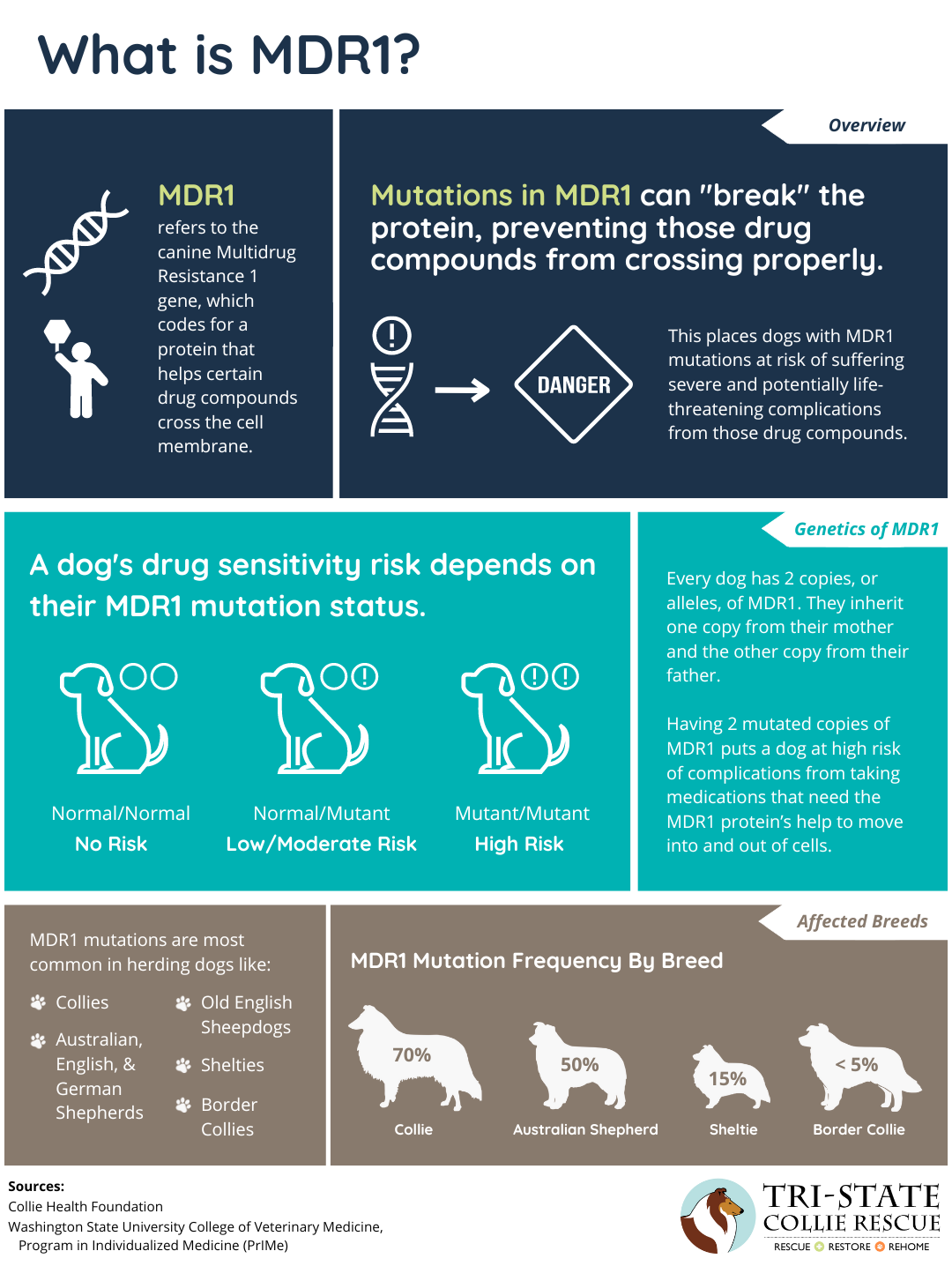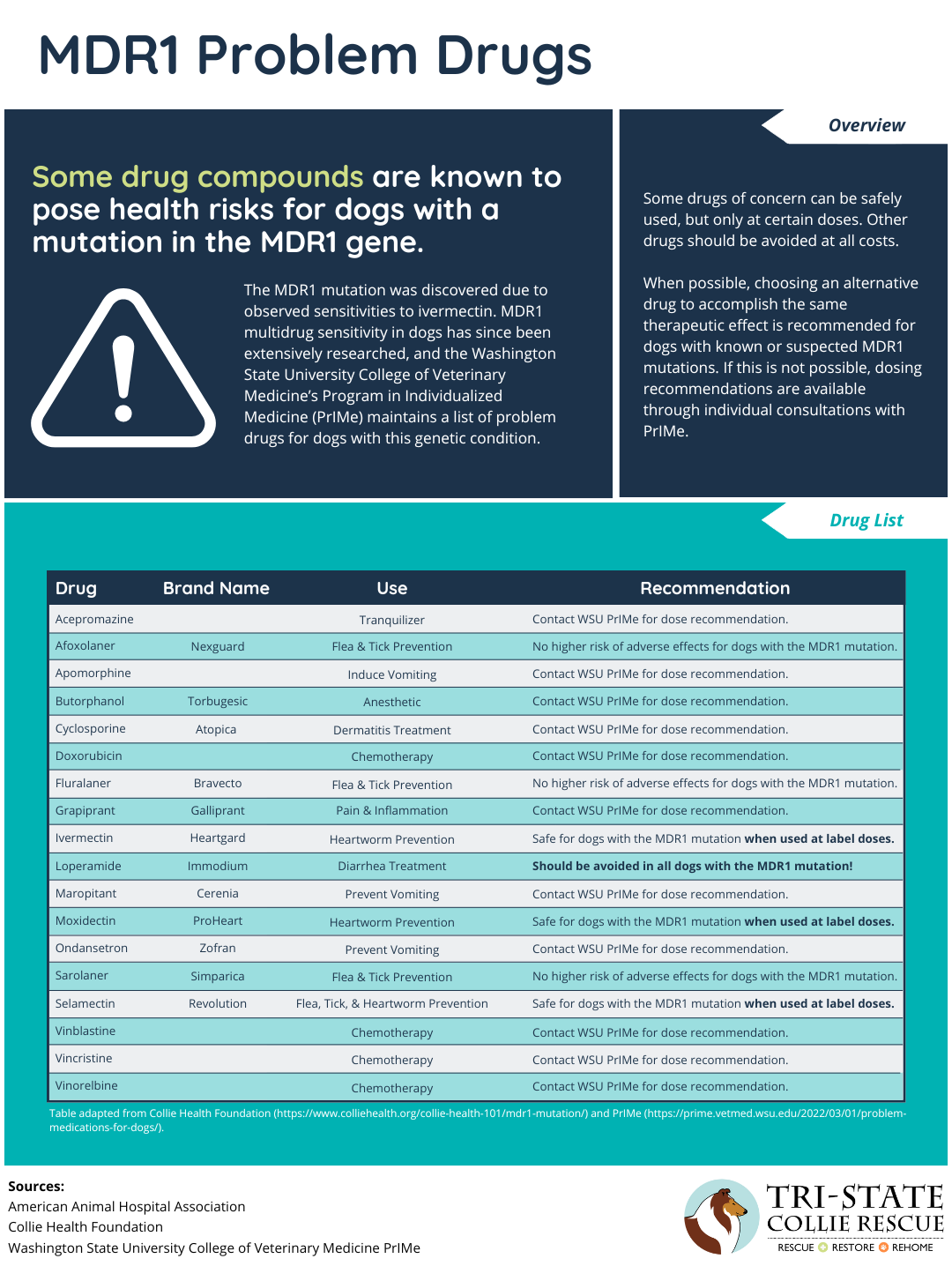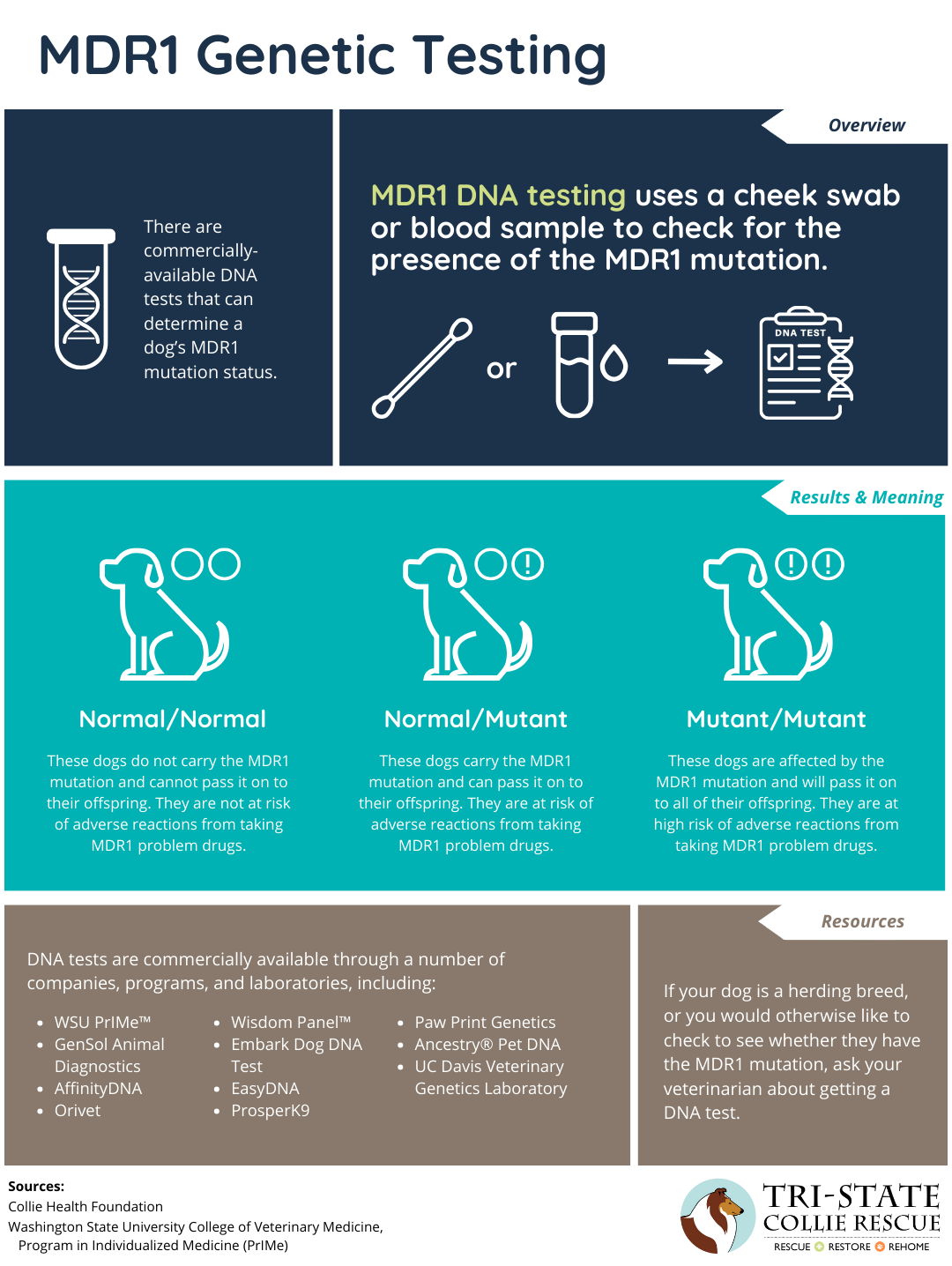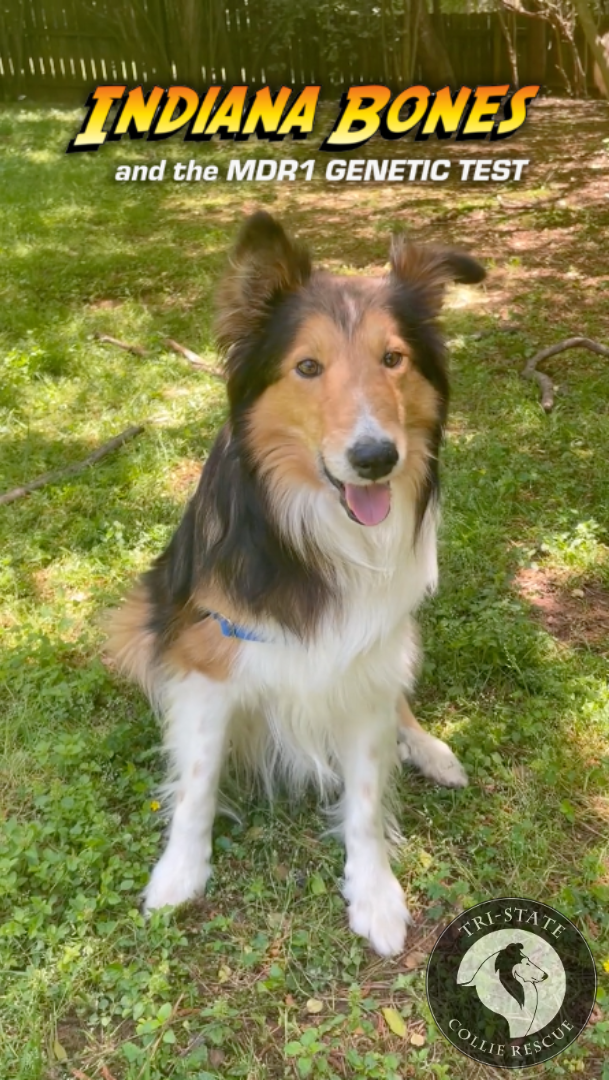Some drug compounds are known to pose health risks for dogs with one or two mutated copies of MDR1. The MDR1 mutation was actually first discovered due to observed sensitivities to ivermectin in some dogs. MDR1 multidrug sensitivity has since been extensively researched, and PrIMe maintains a list of problem medications for dogs with this genetic condition.
Some drugs of concern can be safely used with dogs who have the MDR1 mutation, but only at certain doses. For example, research has shown that ivermectin and related parasite prevention drugs are safe for these dogs at the FDA-approved doses for heartworm prevention, but NOT at the doses required to treat other conditions, such as mange. Other drugs, like loperamide (Immodium) are toxic at even the lowest therapeutic dose and should be avoided at all costs.
In an online summary of MDR1 multidrug sensitivity, the American Animal Hospital Association says that when possible, choosing an alternative drug to accomplish the same therapeutic effect is recommended for dogs with known or suspected MDR1 mutations. If this isn’t possible, dosing recommendations are available through individual consultations with PrIMe.
The infographic on the right shows PrIME’s problem drugs list in a table that was adapted from those displayed on both PrIME’s website and the Collie Health Foundation website. We hope that it’s helpful in learning which medications may be dangerous for dogs with the MDR1 mutation.



